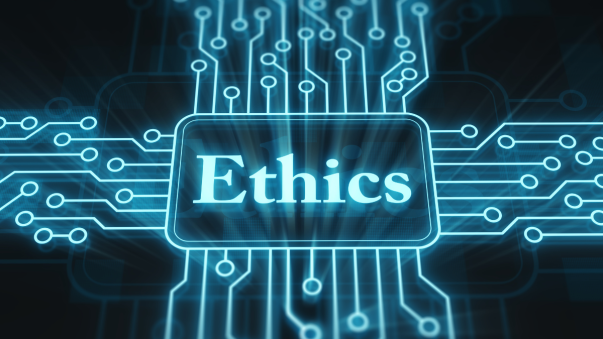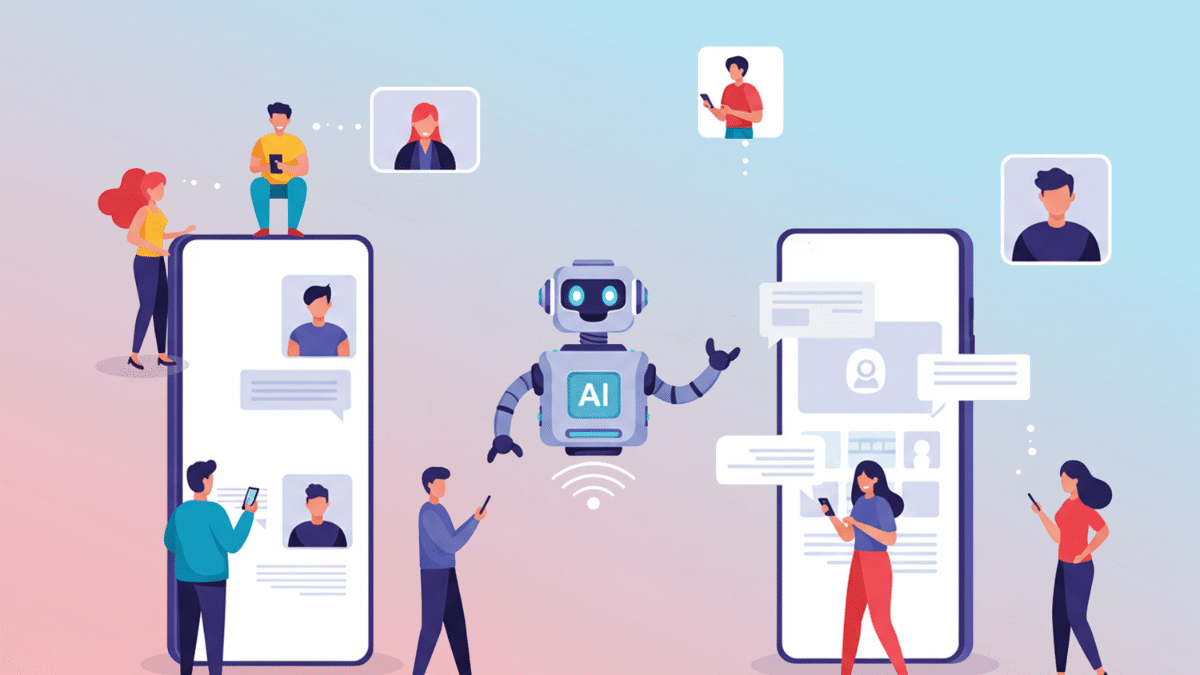AI and Business Communications: 4 Ethical Considerations
Artificial intelligence is a hot topic given the potential benefits, but the intersection of AI and business communications is a complex landscape rife with ethical considerations.

Just as electricity transformed the way industries operated, Artificial Intelligence (AI) is revolutionising how businesses function today. Electricity brought about increased efficiency, productivity, and new possibilities in manufacturing, transportation, and communication. Similarly, AI is introducing automation, data-driven insights, and innovative solutions, reshaping the landscape of business operations, communication, and decision-making across various sectors. Both AI and electricity represent transformative forces that have the potential to shape the future in profound ways.
The impact of AI on business operations and communications has been dramatic. AI-powered chatbots, automated workflows, content creation and data analysis tools have all streamlined processes, improved customer service and increased efficiencies across every industry. Yet, one of the significant challenges stemming from the rapid advancement of AI in business communications revolves around ethical considerations.
Here we look at four key implications and what organisations can do to deploy AI responsibly.
1. Data privacy and security
One of the primary ethical issues concerning AI and business communications is privacy and personal data. Whether it’s a customer, a business partner or an employee, companies are required by law to collect, store and process data securely and within the regulatory framework set out in the jurisdictions where they operate. Not doing so can mean severe penalties and legal liabilities. In 2021, WhatsApp was hit with a €225 million fine for breaching EU privacy law.
To avoid this, businesses should have strong encryption methods in place, as well as robust security protocols. A managed IT solution can help organisations adhere to data and privacy regulations such as General Data Protection Regulation (GDPR).
2. Bias
AI, like all computer technology, makes decisions based on data, so computer bias is not a new phenomenon. In 1988, the UK Commission for Racial Equality found a medical school guilty of discrimination, due to a computer program which was determining which applicants would be invited to interview. Today AI algorithms are much more complex, but AI still can’t identify and reduce human bias.
Bias can creep into algorithms in several ways. AI systems make decisions based on training data which may include biased human decisions or reflect historical inequality. Some hiring algorithms, for example, have been shown to gender profile. In a University of Melbourne study, recruitment algorithms favoured men’s CVs.
There are no quick fixes to addressing bias in AI. This requires business leaders to stay up-to-date on the rapidly developing research out there into tackling bias and audit AI models. Establishing robust protocols, like the way IT security protocols are applied, can help. Google AI has published recommended practices.
3. Transparency and consent
Since AI algorithms are highly complex, it can be very difficult to ascertain how decisions are made. This lack of transparency can lead to issues, especially when it comes to customer interactions. Companies must provide clear information to let customers know when AI is used, defining the limits of what it can do, while also establishing processes for auditing systems.
Likewise, customers should have control over their interactions with AI. Consent should be obtained before using AI in business communications and users should have the power to opt out or customise their interactions.
4. Job displacement
AI continues to cause concerns regarding job displacement and replacing employees. While it does automate repetitive, generic tasks, this should be viewed as an opportunity for employers to refocus staff on more creative, business-critical roles.
AI will also create jobs, as employees reskill to develop and work with AI-powered applications. To gain the full benefit, companies should retrain and upskill employees to use AI as a support mechanism for their roles. Certainly, in places like contact centres, empathy and the human touch will always be needed to manage complex situations and provide a personalised service.
AI and business: ethical organisations thrive
AI has unquestionably brought many advantages to the world of business communications, and new applications continue to be developed which will leverage new benefits for every type of organisation. However, these will come with further ethical implications.
By adopting best practices, companies can mitigate the ethical risks while enhancing the customer experience and introducing efficiencies to their operations. Crucially, they can align their organisations with responsible, ethical, and fair values.
Put the power of AI and business communications to work in your organisation. Talk to DigitalWell about a tailored communication solution that will bring new efficiencies to your operations and help you compete in marketplace. For more insights and on how AI is creating new efficiencies for businesses, see our latest report on the Future of Communications.


